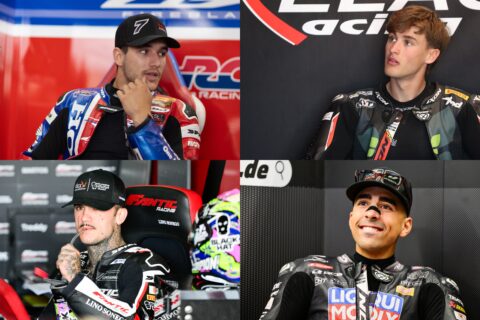SAVING MONEY - OR NOT
There is much hand-wringing among the powers-that-be about the cost of racing. The media coverage it gets is almost entirely confined to the major road racing series, some of which have seen declining grids amid stories of teams going bust through lack of finance as the cost of competing seems to increase year by year.
This is a serious matter although more cynical old-timers, remembering when star riders travelled and lived in Transit vans towing a caravan if they were lucky, will walk through today's paddock looking with wonder at the line-up of motorhomes.
Increasing costs and shortage of money is a real issue at the top level. But it pales into insignificance compared with the problems facing the grass roots. The decline in club racing evidenced by a reduction in the number of organising clubs and a halving of licence holders over the last few years puts it in the category of crisis.
Issues facing clubs are cost of circuit hire therefore affecting entry fees and, for competitors, crippling costs for tyres plus, of course, fuel and transport. Many riders are doing track days instead. It is cheaper and you get more riding time.
Surely it is time for organising clubs and the ACU to get together on this. It must be possible to introduce some sort of formula to cap these costs, particularly on tyres. Regulation is not liked by everybody but if the grass roots of our sport is to be saved from extinction, then someone has to take a lead.
PS: Control tyres, ie contracting with one manufacturer as the sole supplier, is popular with promoters because, they say, it brings more money into racing and can therefore reduce costs. And it levels the playing field because everyone is on the same rubber.Not everybody likes it. Indeed, there is a degree of cynicism from some who say they haven't seen any reduction in cost to them.
It is interesting that the Australian Superbike series has just abandoned the control tyre idea In favour of allowing tyre companies to compete but imposing a cap on the amount any team can spend. Something to think about?
POWER GAME
The intensity of the battle between Jorge Lorenzo and his Spanish rival Dani Pedrosa at Brno provided probably the best entertainment so far in what, up to now, has been a pretty dull MotoGP season.
But an even greater game is being played out away from the track, in the boardrooms of the promoters Dorna and motorcycle giant Honda. Except it is no game. It poses the question: "Who controls MotoGP?"
Since an informal partnership was established between Dorna, IRTA(the International Racing Teams Association) and the Manufacturers Association, and the brand name MotoGP established, it has been manufacturers who have called the shots. And they have been led by Honda.
But manufacturer support has declined; numbers on the grid have dwindled; sponsorship money has dried up. Something had to be done. The solution? Costs had to be cut. No longer could MototGP be a prototype series, affordable only by two or three manufacturers.
The introduction of CRT machines, in effect glorified Superbikes, was accepted by Honda and the others. It hasn't exactly set the world on fire but then it's early days. However, the gloves came off when Dorna announced its latest ideas to put a block on what they regard as expensive electronic aids, or at least reduce the costs by, for example, insisting on standardised ECUs (electronic control units, the heart of the modern racing bike.)
Honda, who have always maintained that racing is essential to road bike development, are as near to apoplexy as the usually urbane Japanese can get. Not only are they throwing their toys out of the pram, they are threatening to take the pram, with toys, home!
Respected motorcycle journalist Mat Oxley, writing in Motor Sport, reports HRC vice-President Shuhei Nakamoto as saying: "At the moment Honda only have a factory team in MotoGP while we have a dealer team in World Superbike. But if we have a single ECU here in MotoGP then Honda's interest will change to World Superbike. Goodbye Carmelo (Espeleta, boss of Dorna). Dorna can make the decision but we must continue spending on (electronics) development. This is very important to Honda."
(It is possible that Mr Nakamoto isn't entirely up with events because when we last heard the Ten Kate Honda team in WSB was using Cosworth electronics.)
This war of words is the latest in a game of chicken between the series owner and the most powerful manufacturer. Recently Mr Nakamoto tried the wind-up technique when offering to fill the grid with cut-price racers if Dorna were running a bit short.
These are difficult days for Dorna. Casey Stoner is retiring, fed up of money men in suits; Ben Spies defecting (maybe) to WSB; one or two teams running short of money; Ducati unlikely to do any better next season than this; and the financial owners wanting more profits and a great story, tempting new owners to pay a big price.
The good news - Rossi's defection to Yamaha and Cal Crutchlow proving, that given the right bike, he could be a winner!
THREE CHEERS FOR CAL
Amid all the cheering, much deserved, for our gold medal haul in Olympics, the performance of Cal Crutchlow in finishing third at Brno was largely overlooked. A class which, for most of its life, was dominated by Brits has not seen someone from these parts on the winners podium for something like 20 years - Jeremy McWilliams, I think, in 2000. Since then it has been dominated by Australians, Americans, Spaniards and Italians.
Crutchlow has been described by some as the 'tough of the track' and so he is, not only in body but sheer determination. It doesn't seem so long since he started making his name in the Virgin Yamaha series and here he is, the best MotoGP rider we have had in 20 years.
Yes, he does occasionally need to engage brain before opening trap but good on yer Cal, you're proving good enough to race with the best.
Cal's success does, however, raise the issue of Britain's barren period. Perhaps it is just that our best racers, currently strutting their stuff in World Superbikes, can succeed at a higher level if given the opportunity.
But perhaps like the Italians or Spanish we need a much better system of discovering, nurturing and financing our young stars. It is having just that sort of system which enabled us to do so well in the sports like cycling in the Olympics. And if they can get money - as does BMX - then why can't motorcycle sport? Over to you ACU.


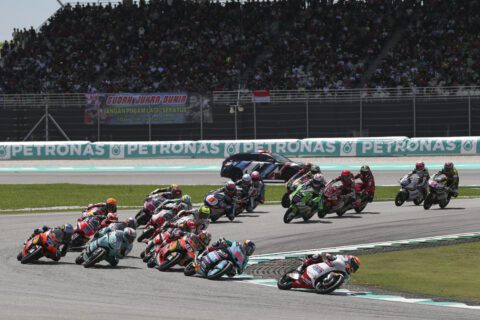
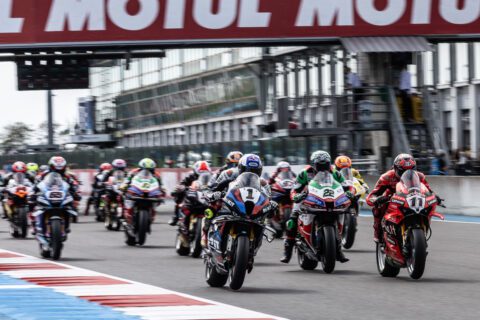
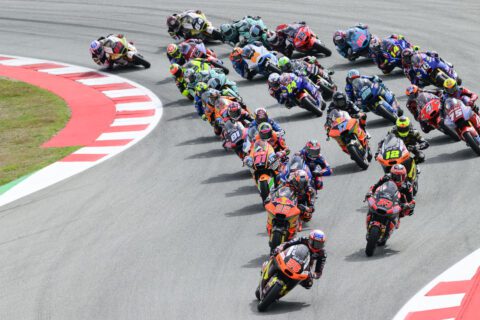
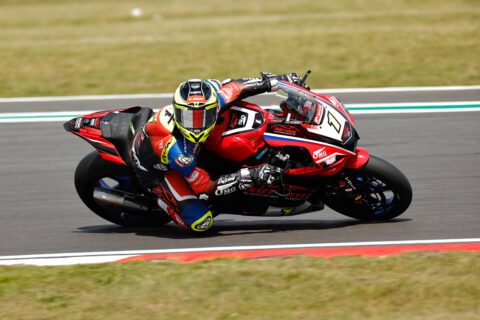
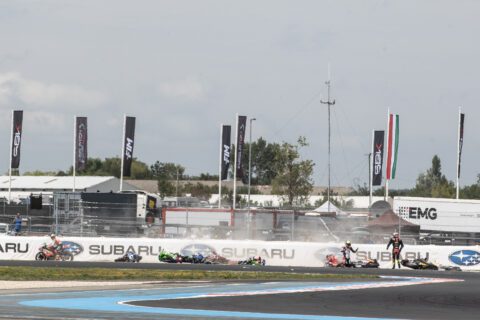
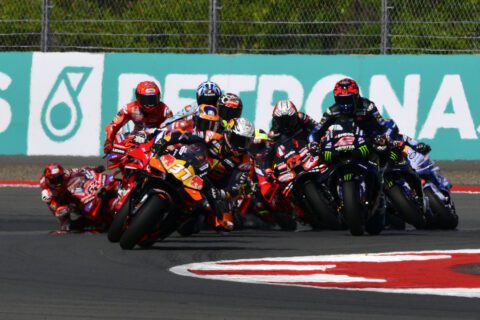
![Shane Byrne, Monstermob Ducati, 2003 WorldSBK, action [Gold & Goose]](https://bikesportnews.com/wp-content/uploads/2025/07/Shane-Byrne-Monstermob-Ducati-2003-WorldSBK-action-Gold-Goose-480x272.jpg)
